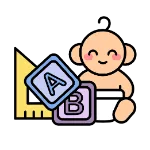
Autism
Answering The Common Questions About Autism In Children
10 min | Updated on 30-03-2023 by HappyPreggie
No parents are ever prepared to hear that their children are anything but happy and healthy - thus, an Autism Spectrum Disorder (ASD) diagnosis can be heart-shattering. You may be unsure of how to help your child or confused by the many conflicting treatment advice. You may also have heard that ASD is a terminal, lifelong condition, making you concerned that nothing you do will make any changes. While it is true that ASD is not something your child will 'grow out of', many treatments can help your child obtain new talents and overcome various developmental challenges. From government services, in-home behavioural therapy, and school-based programs, many assistances have been made available to fulfill your child's requirements and help them learn, grow, and thrive despite their circumstances.

Being emotionally strong allows you to be your child's best parent. Ms. Charlene Marie Samuel, Director of Autism Behavioral Center (ABC), helps you better understand your child's condition - from the effects of Autism to the dos and donts in handling an autistic child.
Q1. What are the key factors that influence the diagnosis of autism?

A diagnosis of autism is very much dependent on the awareness of parents and families. Often, children that receive the diagnosis early are due to the family being well informed, leading to the child also receiving intervention sooner; hence better outcomes!
If you are referring to the causes of autism, they are still unknown but it's surely not due to vaccinations. This has been debunked several times now.
This is mostly due to how autism affects language, both communication and understanding. Oftentimes, we work with children that are unable to understand and follow simple instructions, or even distinguish between daddy and mommy. Awareness of what's going around a person is correlated to comprehension- which is directly impacted by language and understanding of concepts and words.
This comes down to functions of behaviour, SEAT (Sensory, Escape, Attention, Tangibles).
 (Image credits to Child Mind)
(Image credits to Child Mind)
Often a child has a behaviour due to:
How you would soothe him would be depending on the functions. From a clinical standpoint, we always want to reinforce positive behaviour. Hence if your child is screaming for the iPad, that would not be the best time to give in as that would mean in future, your child has learnt to scream to receive the iPad!
In teaching, we implement PaTTAN (Pennsylvania Technical and Assistance Network) which is already established and widely researched. Our main focus is addressing behaviour, but most importantly we teach a child to communicate immediately in the program. For early learners, we teach them to request what they want, label items, follow instructions, and imitate both movements and sounds. These are some of the basic skills we address in therapy, to begin with. All programs are individualised to reflect the child's needs and goals.
Besides being able to count, sit down, follow instructions, socialise, etc. The most important abilities are to communicate wants and needs, imitate actions and words and regulate emotions/behaviours.

A common misconception is to send a child with autism to school to learn to speak and behave like other children. Instead, these are the skills that should be addressed through intervention before enrolling in any mainstream academic setting.
Do remember your child with autism is a child! He will often behave like his peers, e.g. being cheeky/mischievous, and this is not due to autism, but solely because he is a child!
Don't compare- each child is different and the spectrum is so wide. There are no two individuals that are alike.
Additionally, on top of 1:1 therapy services in ABC/home based (either 3 or 6 hours a day), we provide training to ensure skills are transferred and families can support their children outside of therapy settings.
Great question. Use these interests/motivations as tools to learn, e.g. complete maths homework followed by 1 hour on the piano.
This ensures a balance on other tasks in the day to be completed and also provides time and space to work on their passions/interests.
I understand why this is so, as many families with children with moderate/severe autism- this takes so much out of them to support and nurture an individual with autism- and of course seeking a cure comes naturally to conditions like this, not just autism. However, acceptance and inclusiveness for the autism community can go a long way in supporting families that have children with autism.

ABC has supported Malaysia Airports and Sunway Malls in efforts to be more inclusive to individuals with autism and hidden disabilities, and this is a step in the right direction for the autism community.
Finally, do understand that autistic children are just children, and they will be naughty, throw a tantrum; just like any child does! Read more on the wrong parenting tactics you should avoid here: Common Parenting Tactics That Aren't Good For Your Kid and what you can do to soothe your child here:These 8 Steps Help You To Handle Upset Toddlers.
Being emotionally strong allows you to be your child's best parent. Ms. Charlene Marie Samuel, Director of Autism Behavioral Center (ABC), helps you better understand your child's condition - from the effects of Autism to the dos and donts in handling an autistic child.
Q1. What are the key factors that influence the diagnosis of autism?
(Image credits to Penn Today)
A diagnosis of autism is very much dependent on the awareness of parents and families. Often, children that receive the diagnosis early are due to the family being well informed, leading to the child also receiving intervention sooner; hence better outcomes!
If you are referring to the causes of autism, they are still unknown but it's surely not due to vaccinations. This has been debunked several times now.
Q2. Why do children with autism have trouble understanding what’s happening around them?
This is mostly due to how autism affects language, both communication and understanding. Oftentimes, we work with children that are unable to understand and follow simple instructions, or even distinguish between daddy and mommy. Awareness of what's going around a person is correlated to comprehension- which is directly impacted by language and understanding of concepts and words.
Q3. My child tends to scream when upset. How should I identify what’s triggering the behaviour? How should I soothe him?
This comes down to functions of behaviour, SEAT (Sensory, Escape, Attention, Tangibles).
Often a child has a behaviour due to:
- Being overwhelmed or underwhelmed by sensory input, e.g. sound, touch, taste, smell.
- Escaping from demands is also known as task avoidance.
- Seeking attention both positive attention, e.g. being picked up and hugged or negative attention, e.g. being scolded or shouted at.
- Access to tangible, e.g. toys, food, activities, etc.
How you would soothe him would be depending on the functions. From a clinical standpoint, we always want to reinforce positive behaviour. Hence if your child is screaming for the iPad, that would not be the best time to give in as that would mean in future, your child has learnt to scream to receive the iPad!
Q4. How does the ABA (Applied Behavior Analysis) approach used by the Autism Behavioral Center improve the speech, communication, social skills, and behaviours of autistic children?
In teaching, we implement PaTTAN (Pennsylvania Technical and Assistance Network) which is already established and widely researched. Our main focus is addressing behaviour, but most importantly we teach a child to communicate immediately in the program. For early learners, we teach them to request what they want, label items, follow instructions, and imitate both movements and sounds. These are some of the basic skills we address in therapy, to begin with. All programs are individualised to reflect the child's needs and goals.
Q5. How should I prepare my child with autism for school and what are the school readiness skills needed?
Besides being able to count, sit down, follow instructions, socialise, etc. The most important abilities are to communicate wants and needs, imitate actions and words and regulate emotions/behaviours.
(Image credits to ABC Autism)
A common misconception is to send a child with autism to school to learn to speak and behave like other children. Instead, these are the skills that should be addressed through intervention before enrolling in any mainstream academic setting.
Q6. What are the dos and don'ts when handling a child with autism?
Do remember your child with autism is a child! He will often behave like his peers, e.g. being cheeky/mischievous, and this is not due to autism, but solely because he is a child!
Don't compare- each child is different and the spectrum is so wide. There are no two individuals that are alike.
Q7. How does the Autism Behavioral Center support families with autistic children with the offered services?
Additionally, on top of 1:1 therapy services in ABC/home based (either 3 or 6 hours a day), we provide training to ensure skills are transferred and families can support their children outside of therapy settings.
Q8. Many autistic people have intense ambitions and highly-focused interests in arts and music. How can parents encourage and support their children to do things that interest them?
Great question. Use these interests/motivations as tools to learn, e.g. complete maths homework followed by 1 hour on the piano.
This ensures a balance on other tasks in the day to be completed and also provides time and space to work on their passions/interests.
Q9. Autism is still being identified as an illness or disease that requires a cure. What are your thoughts on this and how others should perceive and understand autism?
I understand why this is so, as many families with children with moderate/severe autism- this takes so much out of them to support and nurture an individual with autism- and of course seeking a cure comes naturally to conditions like this, not just autism. However, acceptance and inclusiveness for the autism community can go a long way in supporting families that have children with autism.
(Image credits to Sunway Putra Mall)
ABC has supported Malaysia Airports and Sunway Malls in efforts to be more inclusive to individuals with autism and hidden disabilities, and this is a step in the right direction for the autism community.
Finally, do understand that autistic children are just children, and they will be naughty, throw a tantrum; just like any child does! Read more on the wrong parenting tactics you should avoid here: Common Parenting Tactics That Aren't Good For Your Kid and what you can do to soothe your child here:These 8 Steps Help You To Handle Upset Toddlers.
Join the largest support network for family health and well-being. Ready to get started?
Get started
















